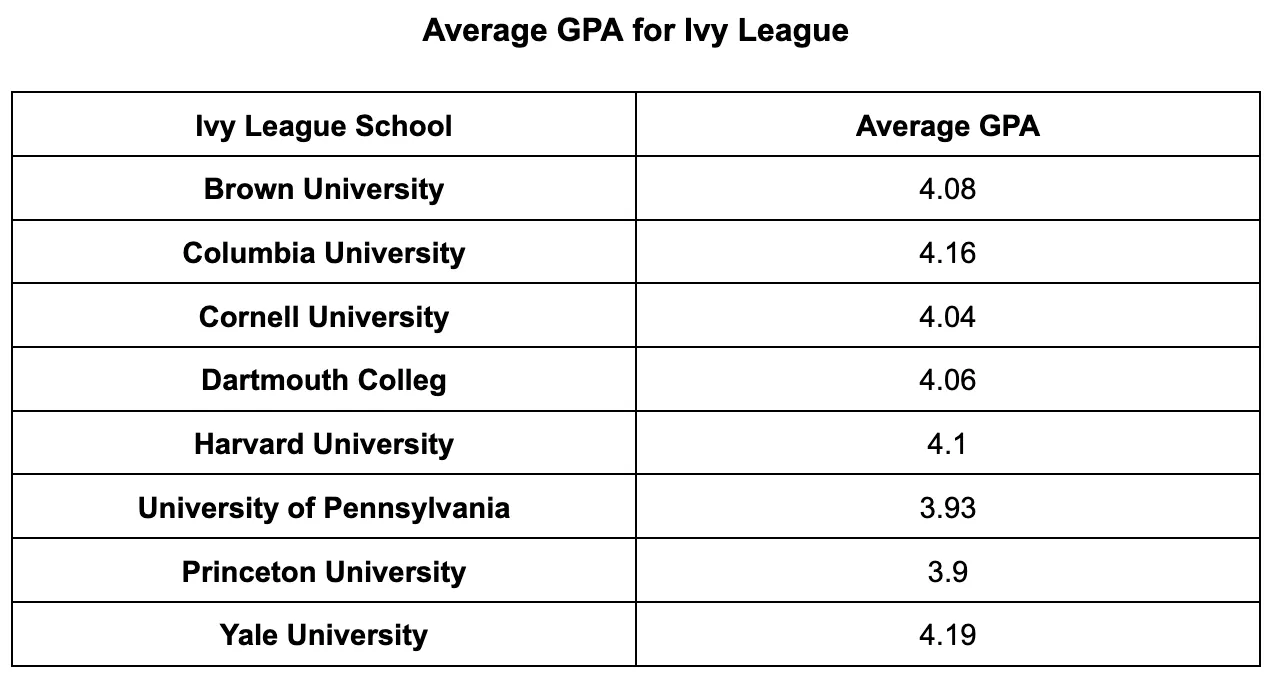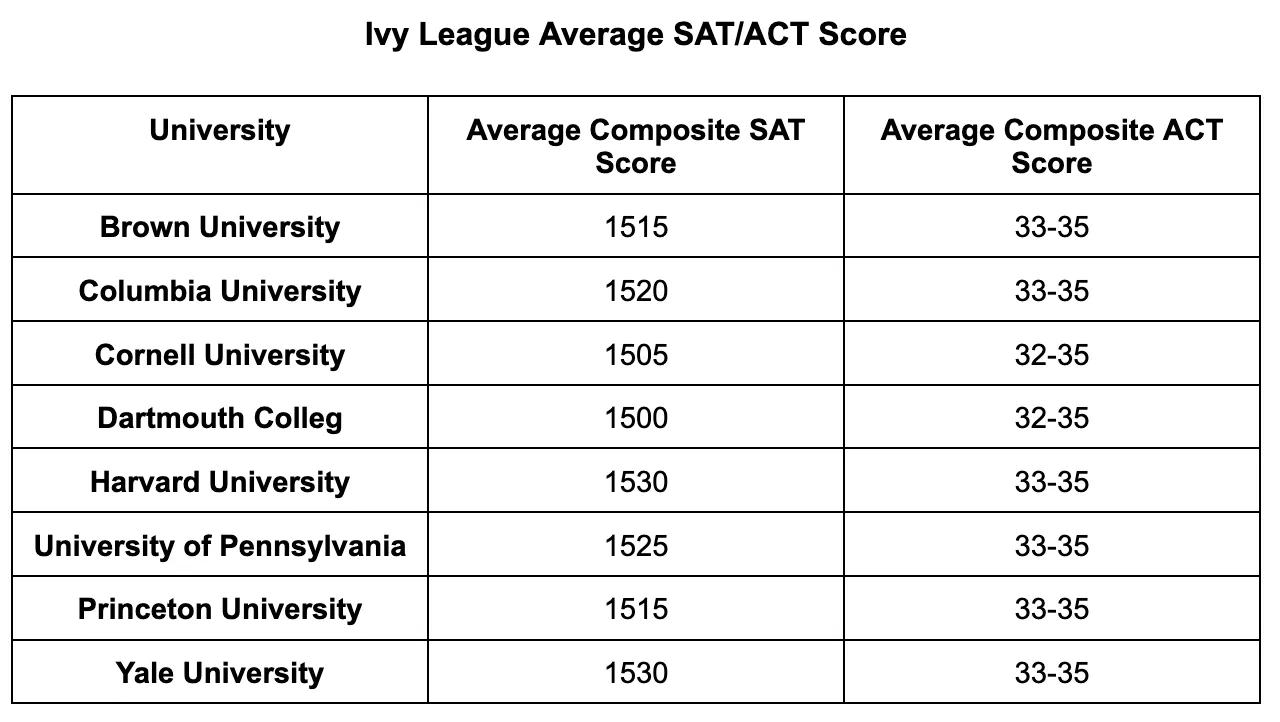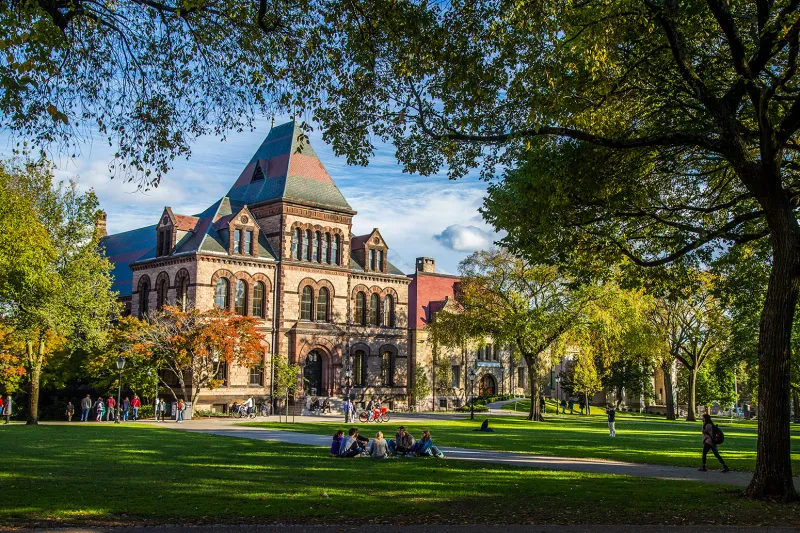How To Get Into an Ivy League?


If you are an ambitious high school student, you might be wondering how to get into an Ivy League school.
We at Indigo support all big dreamers and are here to tell you how you can get into an Ivy League school. In this blog, we’ll cover what Ivy League schools look for. And many more questions that you might have regarding admissions for the Ivy League schools.
So, without further ado, let's find out what you need to do if you want to get into an Ivy League.
Who gets into Ivy League schools depends on many factors, such as:
Before you apply anywhere and everywhere, ask yourself which Ivy League is best for me. Researching colleges is extremely important for informed decision-making and showing commitment to admissions officers. You can easily start with official websites and online tools to explore programs, faculty, and rankings. Make sure to dive deeper into specific majors and opportunities related to your interests, like internships or study abroad.
Research where are all the Ivy League schools and investigate campus life by exploring clubs, sports, and housing options. If possible, visit campuses for a firsthand experience and attend tours and classes. Connect with admissions officers for more information tailored to your specific case and attend virtual sessions. Research financial aid options, including scholarships and grants, if you think self-funding your education is going to be challenging.
Researching will help you find the right fit academically and socially. It will also help you in your application essays and interviews to show you have done your research and that going to this specific college aligns with your goals.
Doing well in high school is really important for getting into college, especially an Ivy League college. It's important because it shows them you work hard, manage your time well, and are curious to learn new things. Colleges like seeing this because it shows you're ready for tough academic challenges. While we aren't pushing the narrative that grades are the only thing colleges look at, they however make 40% of your application.
To get good grades and really make your profile shine through among thousands of profiles, you need to take on challenging classes whenever you can, like dual enrollment courses. This shows colleges that you're ready to challenge yourself and learn at a higher level, even right now.
Just enrolling in classes isn't enough. You have to perform well in all those classes. Colleges look at your overall GPA and how you perform in different subjects. The minimum GPA for getting into an IVY League school is 3.9. The more you’re on the higher side, the more chances you have of getting in. Moreover, make sure you study well and plan ahead for your exams and standardized tests, like the SATs. Good grades and test scores show colleges that you have the potential to do well academically.
To take things up to the next level and show the admission committee that you're curious and interested in learning, take part in activities outside of school. This could be joining academic competitions, doing your own research, attending summer programs, studying for AP exams on your own, or exploring new subjects through community groups.
If you’re interested in conducting research, getting a mentor on board will help you. At Indigo Research you can begin your research any time throughout the year, helping you build on skills and knowledge. Our High School Student’s programs can help open doors to college-level research that lays the groundwork for your college application.

As more colleges allow students to apply without submitting their grades, it's important to know the role of standardized tests in your application. Good scores can show colleges that you're academically prepared, a true hard worker, and basically committed to your studies.
You can check each college's policies about tests and see what scores their students usually get.
Also, remember, just because you took a test doesn't mean you have to send its results. Moreover, try to aim for scores that are above average at the colleges you're interested in.
Take practice tests for the SAT and ACT to see which one suits you better if the college doesn't have a preference. For SATs, your score should be around 1500 out of 1600. For ACT, you need to aim for 33 out of 35.

Extracurricular activities are really important for your college application, making up about 30% of the final verdict of your application. Think of it as a way for them to find out more about you other than just your grades and test scores.
Taking part in extracurricular activities shows colleges that you have leadership, teamwork, and time management skills. You can look into Student Government, Model United Nations, coding clubs or debate teams.
Additionally, if your activities match what you want to study in college, it shows you're really passionate and serious about that subject.
Showing the result of your participation in these activities and how it benefited your school, community, or personal growth will give you an extra edge on your application.
Your college essays are a golden chance to show the admissions officers who you are other than your grades and extracurricular activities. This personal statement can make or break the game, especially if your other application parts are not so strong.
So, now the question is, how can you make your personal statement stand out?
The first and most important thing is to be yourself. Don't just write things that you feel the admissions officers want to hear. That won't get you anywhere. Just be as natural as you can.
One good strategy is to use stories and details that bring your experiences to life. Show your qualities through stories. You can highlight what you learned from these experiences and how these helped you to come closer to your goals. This will show your thoughtfulness and maturity.
It's always good to pick essay topics that let you share important things about yourself. Also, remember that colleges are looking for students who show character and contribute to the community. Also, your essays should answer each college's questions and values to make them look more impactful.
Getting strong letters of recommendation can really boost your college application. Admissions officers like hearing from teachers, mentors, or coaches who know you well and can talk about your qualities beyond what's on your application.
So, how do you get great recommendations?
First, choose recommenders who can give specific examples of your skills and character because they know you well. It's good to get recommendations from different areas, like teachers from different subjects or people involved in your extracurricular activities.
Make sure to ask for recommendations early so your recommenders have time to write thoughtful letters. Sharing your essay drafts or talking about your goals can also give them more insight into you as a person.
Ivy League consists of 8 prestigious colleges in the US. We’ll talk briefly about all of them so you can make an informed decision for your college studies and answer the question wavering in your head: which Ivy League is best for me?

Brown University is renowned for its student-focused approach to learning, emphasizing self-directed exploration. It’s famous for development studies, economics and econometrics, and English language and literature. Brown University stands out as a leading research and educational institution where students are encouraged to pave their own academic paths.
Unlike other major universities, Brown offers undergraduates the unique opportunity to create a personalized course of study. So you have to really be focused and self-driven about your research to get into brown and fit in while also standing out from the lot doing their independent research at Brown.
At Columbia University, undergraduate students begin with a set of courses covering various subjects like literature, philosophy, science, art, history, and music, including smaller seminar-style classes. It’s known for its history, pharmacology, mathematics, and statistics majors.
With a class size of around 22 students, there's a strong focus on close interaction between students and professors. The university is well-known for its STEM programs, particularly in engineering and computer science, which are highly popular among students. Here is an example of STEM-related research done at Indigo Research - Stem cells: “Basics and Advances” that can help you lay the groundwork of your research project.
So, if you are really passionate about science and would like to live near Manhattan, New York, Columbia is the university for you.
Students often ask which Ivy is the easiest to get into, and most of the research has highlighted Cornell University. So, if you're enthusiastic about making a positive difference in people's lives locally and globally, Cornell could be the right fit for you. Cornell University is famous for its majors in Computer and Information Sciences and Support Services, Business, Management, Marketing, and Related Support Services.
The university focuses on community and public service. Additionally, Cornell is known for its research centers in areas like nanotechnology, biotechnology, supercomputing, and genomics, showcasing its commitment to interdisciplinary excellence and advancement.
At Dartmouth College, the faculty members are both experts in their fields and really dedicated to teaching. The most famous majors at Dartmouth College are Social Sciences, Computer and Information Sciences and Support Services, and Engineering. Dartmouth's professors are widely recognized as some of the most esteemed educators in the American higher education system.
Moreover, the university's quarter system, which offers a high degree of flexibility, is particularly beneficial for students who want to explore a wide range of educational opportunities available at Dartmouth.
Harvard gives students personalized attention with great research chances, interesting classes, and supportive teachers, helping those who already know what they're passionate about and those still figuring it out. Harvard is most famous for its law, business, medicine, and political science majors.
They have a House System where students live and learn together, making it a big part of their college experience. Each house has spaces for studying, relaxing, and doing fun activities, like eating together in the dining hall or hanging out in common rooms.
The University of Pennsylvania has a rich history rooted in American culture. It’s known for its academic programs in business, medicine, and law. Students are encouraged to take part in extracurricular activities that are rooted in the city's and wider world's cultural, social, and political scenes. The professors who have won awards for their work lead classes and inspire students to follow their interests, tackle difficult issues, and make a positive impact globally.
Princeton focuses on undergraduate learning and provides generous financial aid to ensure all admitted students can graduate without significant debt. It’s known for its degrees in Public and International Affairs, Mathematics, and Physics. The university values diversity in its student body, welcoming individuals from various cultural, ethnic, and economic backgrounds.
Collaboration and original research are encouraged, with Princeton emphasizing the importance of experiences alongside education. Students are encouraged to take part in extracurricular activities, community service, and personal pursuits to enrich their college experience.
Yale is a combination of a research university and a liberal arts college. Its standout degrees include Law, Political Science, and Economics. They select students based on their potential to make the most of Yale's resources and positively impact the university community.
If you are asking yourself, “Will I get into Yale?”, well, we highly recommend focusing on your grades and your extracurriculars, including volunteering, as they seek individuals who are motivated to push their boundaries and make meaningful contributions to society.
Getting into an Ivy League school is tough, but it is possible if you work hard. Doing meaningful activities, showcasing your unique talents, getting good recommendations, writing a great personal statement, and doing your best on tests can boost your chances. Ultimately, it takes determination, persistence, and a genuine desire to do your best and contribute positively to the college community to aim for Ivy League admission.
We hope we answered your question: “How do you get into an Ivy League?”. If you are interested in research and want to improve your college application, we highly recommend these research opportunities for high school students. You can also get help from Indigo Research mentors. With mentors from the IVY League schools, your research is sure to stand out.
To get into an Ivy League for Master, you need a Bachelor’s degree or equivalent, transcripts from undergraduate and graduate schools with a GPA, and Standardized test scores (GMAT, GRE, LSAT, MCAT) depending on the program you want to get into, and letters of recommendation. You also need a personal statement, resume, and CV.
Yes, it's good enough, but you should aim for higher. The more you score, the more chances you have of getting in.
The Ivy League that is best for you depends on your career goals, personal preferences, and academic goals. Make sure you check out each school’s academic programs, locations, and campus culture before applying.
Each Ivy League is famous for a major. Brown is famous for development studies, economics and econometrics, and English language and literature. Columbia is known for its history, pharmacology, mathematics, and statistics majors. Cornell University is famous for its majors in Computer and Information Sciences and Support Services. Dartmouth is known for its Social Sciences, Computer and Information Sciences. And Harvard is known for its LAW.
To get into an Ivy League, you need to send in your application, high school transcript, letters of recommendation, test score, application essay and supplemental essay. You also have to add some extracurricular activities. Once everything is submitted, for some universities, you need to attend an interview.
Ivy League schools are prestigious because of their world-class faculty members and academic programs. Because of these things, their admission process is highly competitive.
Your chances of getting into the Ivy League depend on your academic score, test scores, leadership roles, extracurricular achievements, and letters of recommendation. The Ivy League's website allows you to compare these against the average profiles of admitted students. There are tools out there that you can use to calculate your chances.

Enhance your Ivy League application by conducting research with Indigo! Research has been shown to significantly increase the likelihood of college acceptance. At Indigo, we pair students with Ivy League professors and top universities, ensuring you receive the best mentorship available.


Enhance your Ivy League application by conducting research with Indigo! Research has been shown to significantly increase the likelihood of college acceptance. At Indigo, we pair students with Ivy League professors and top universities, ensuring you receive the best mentorship available.